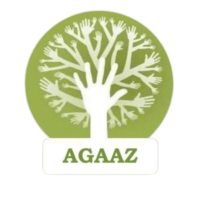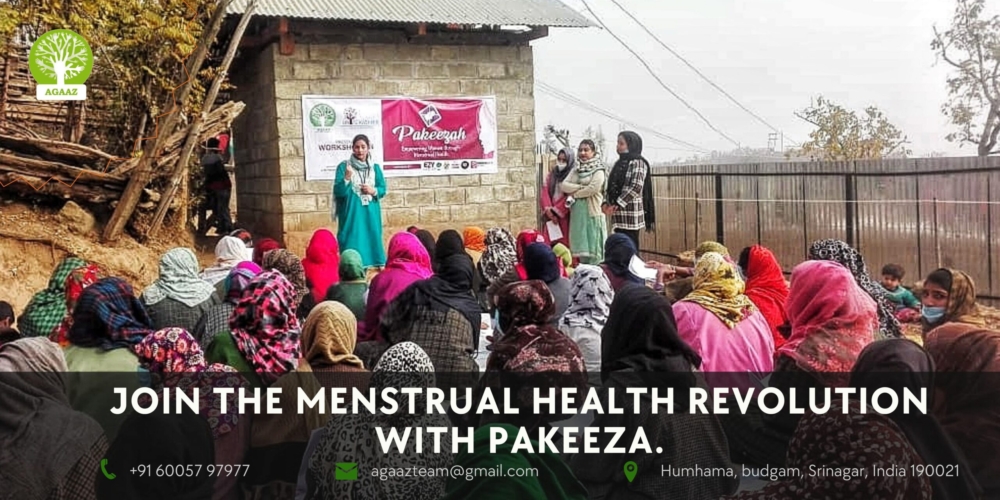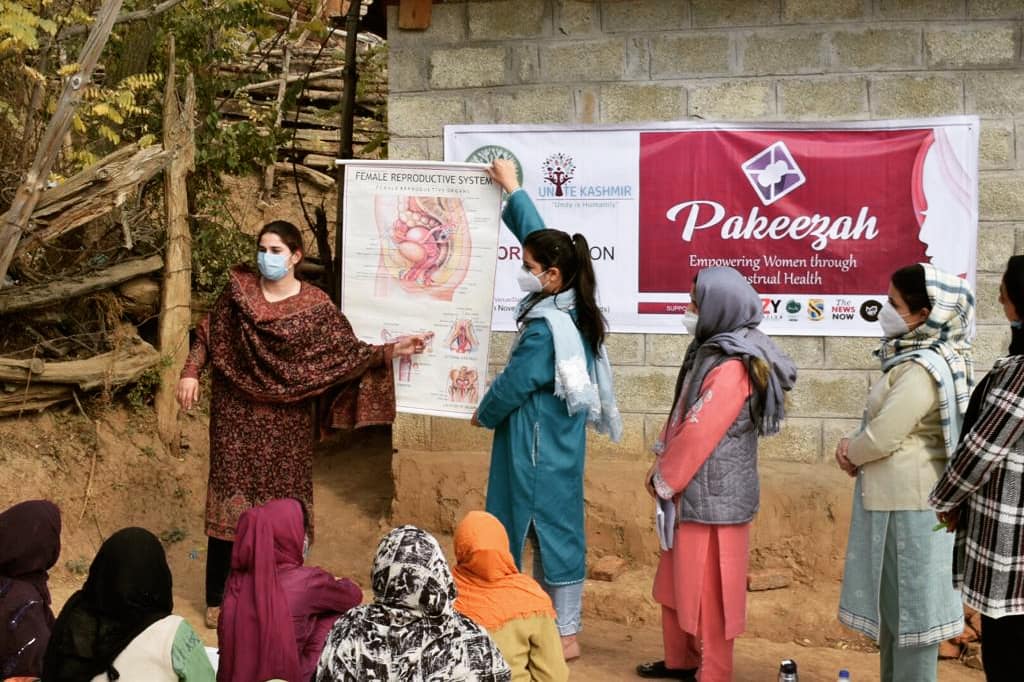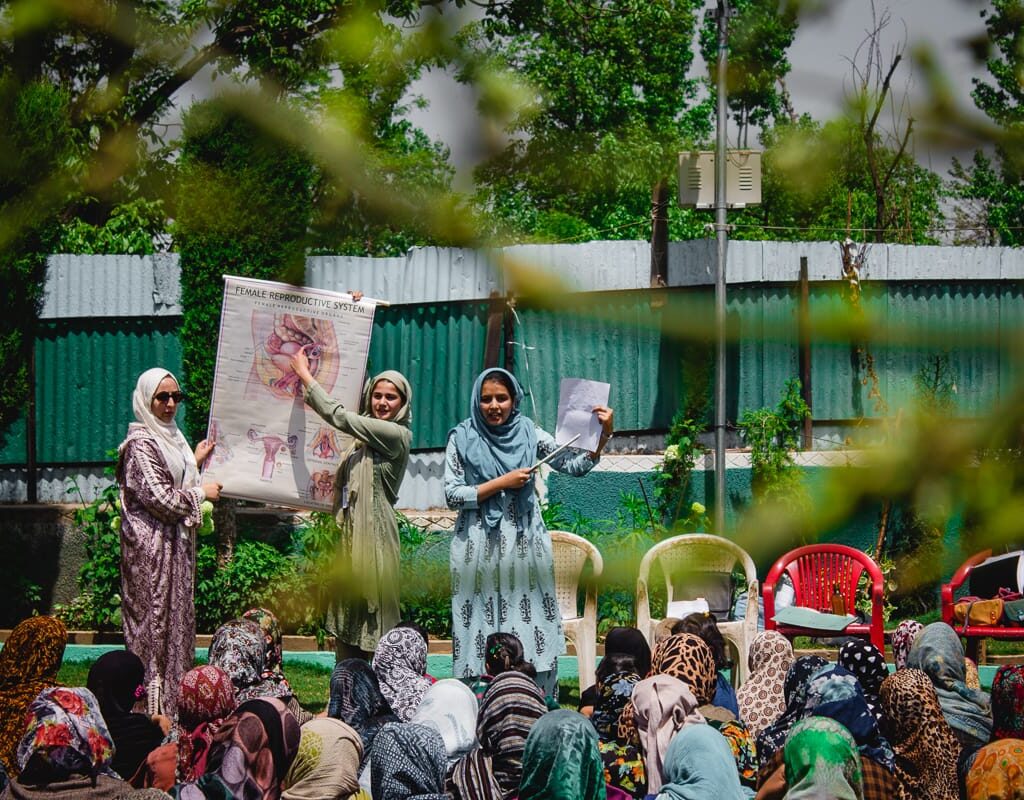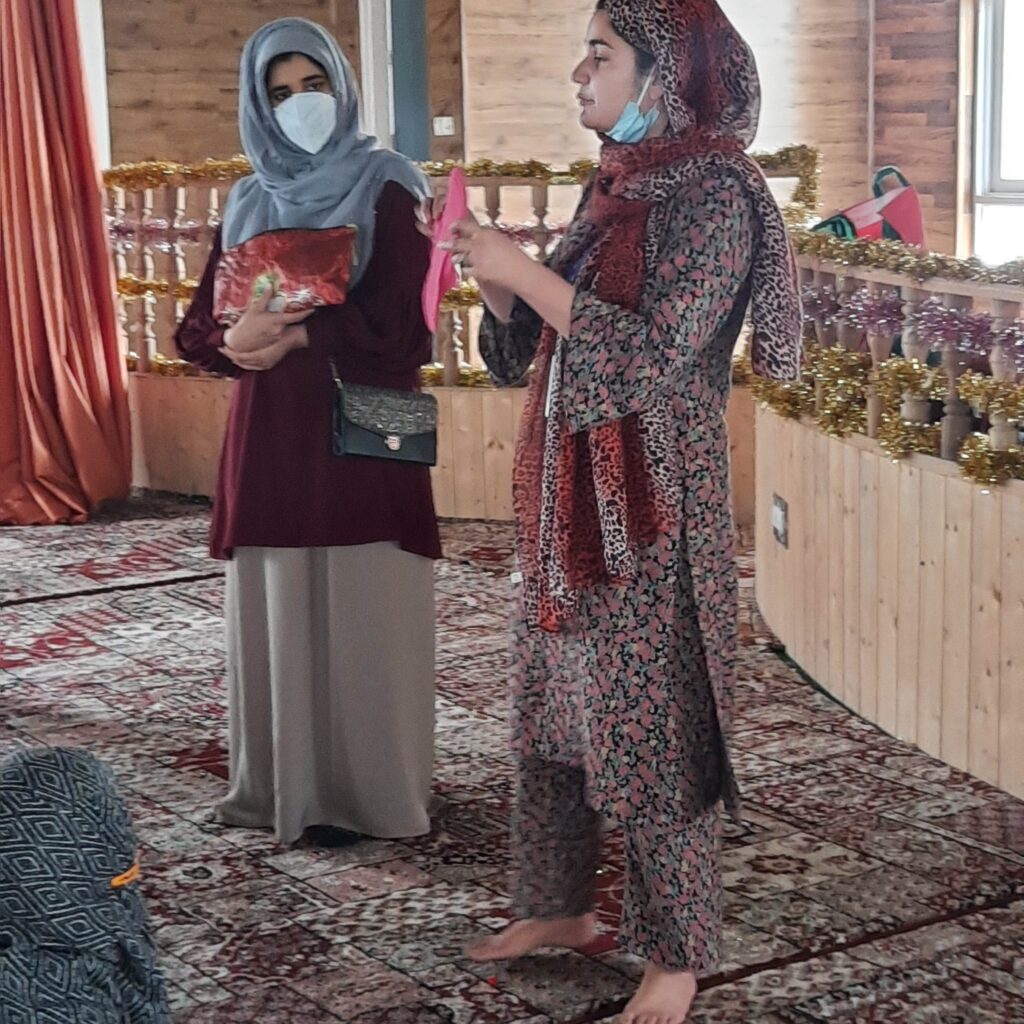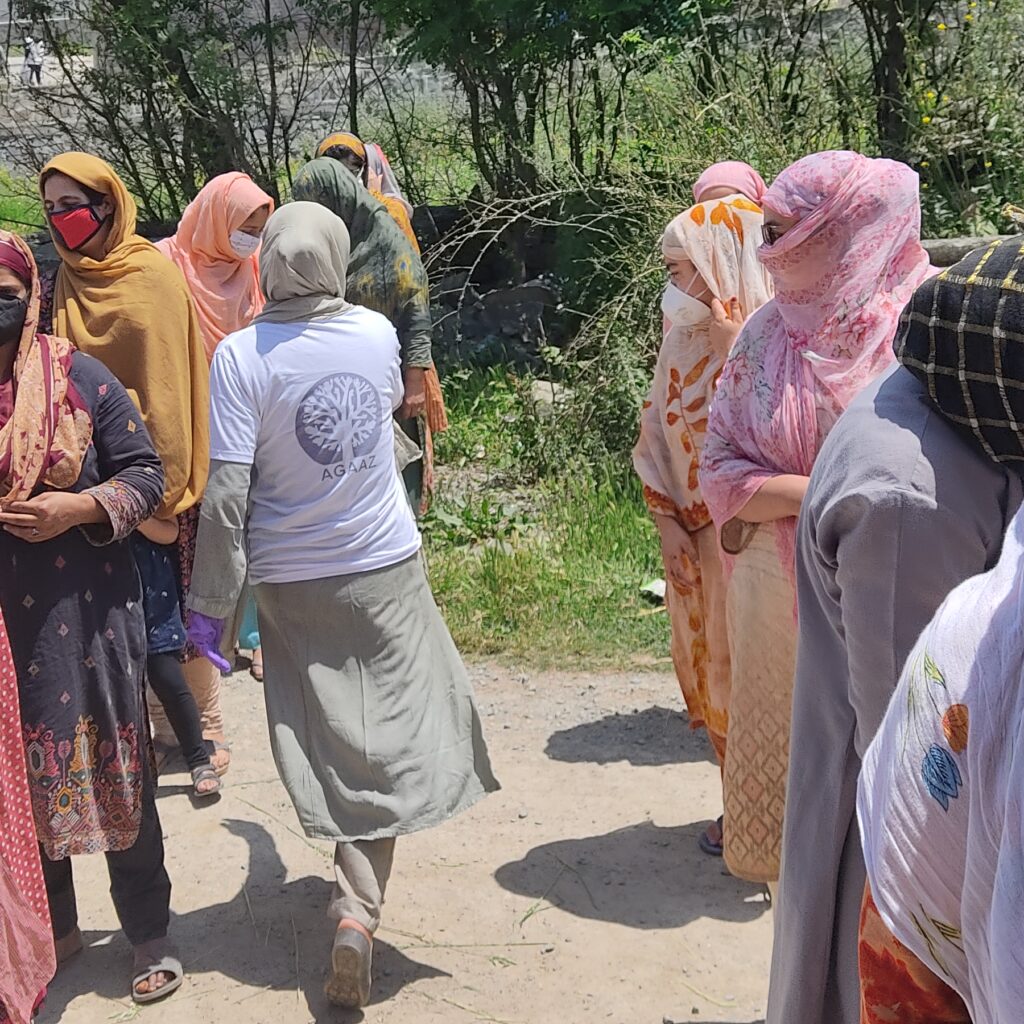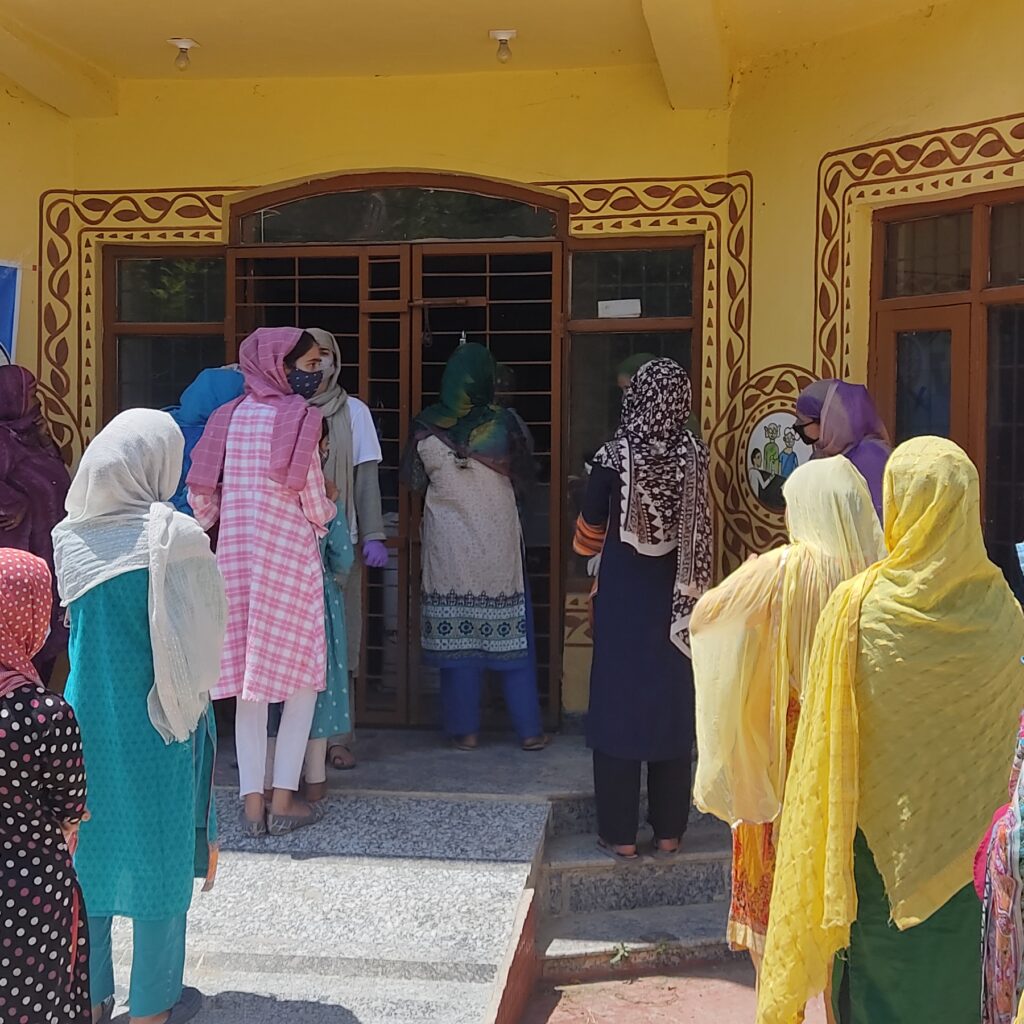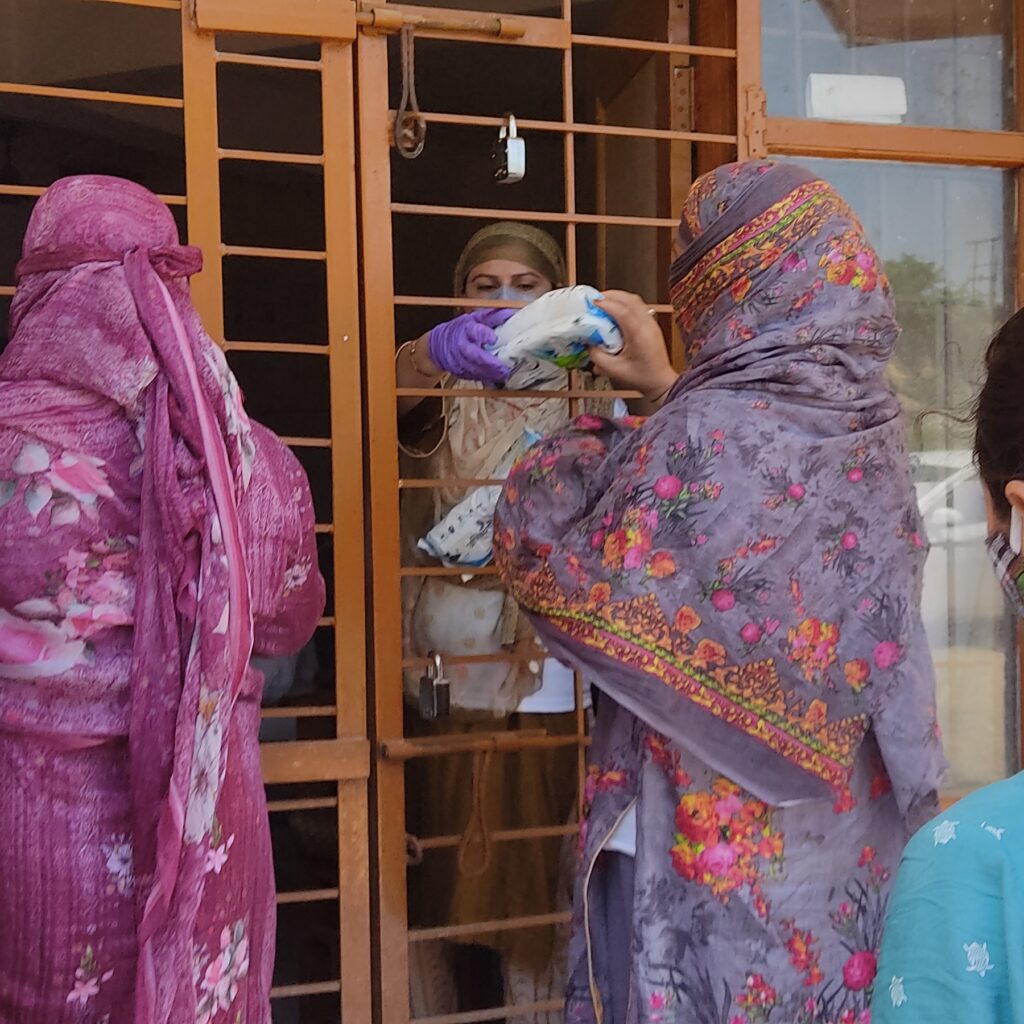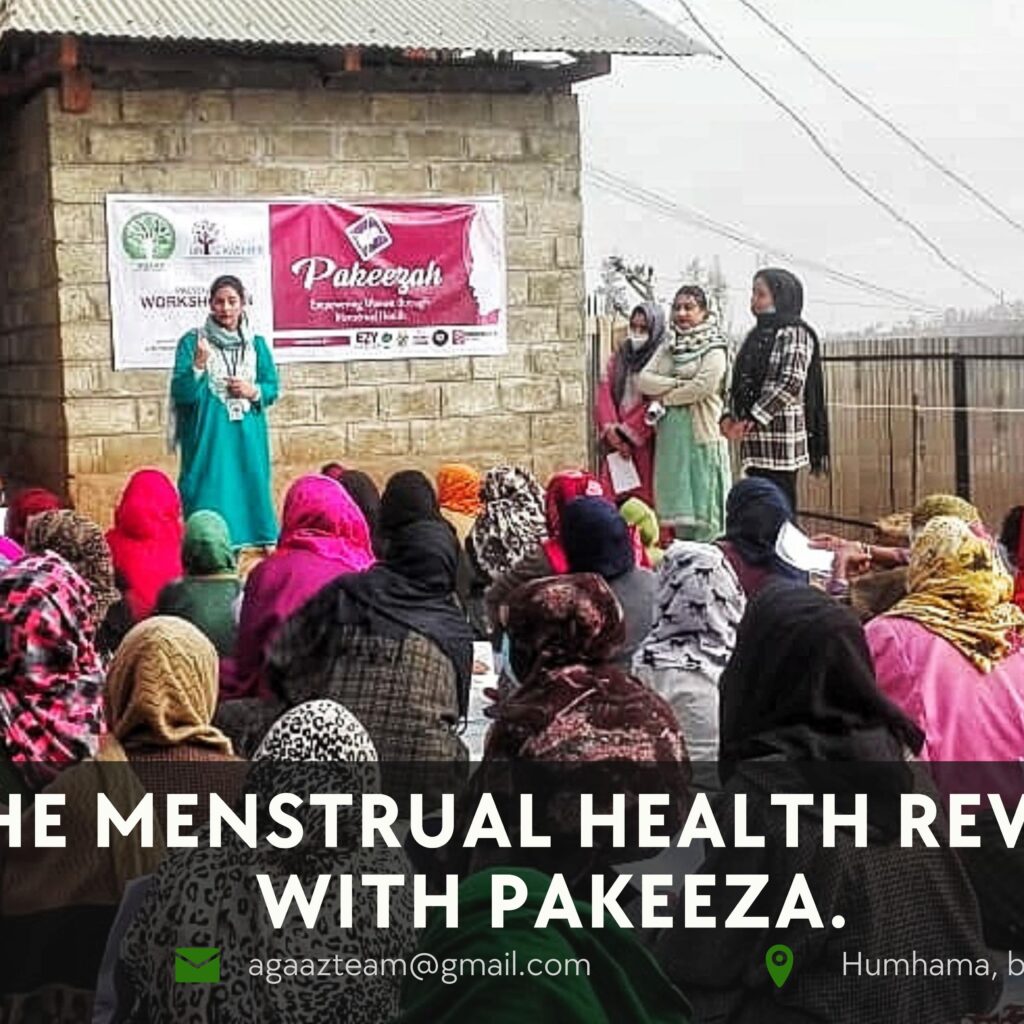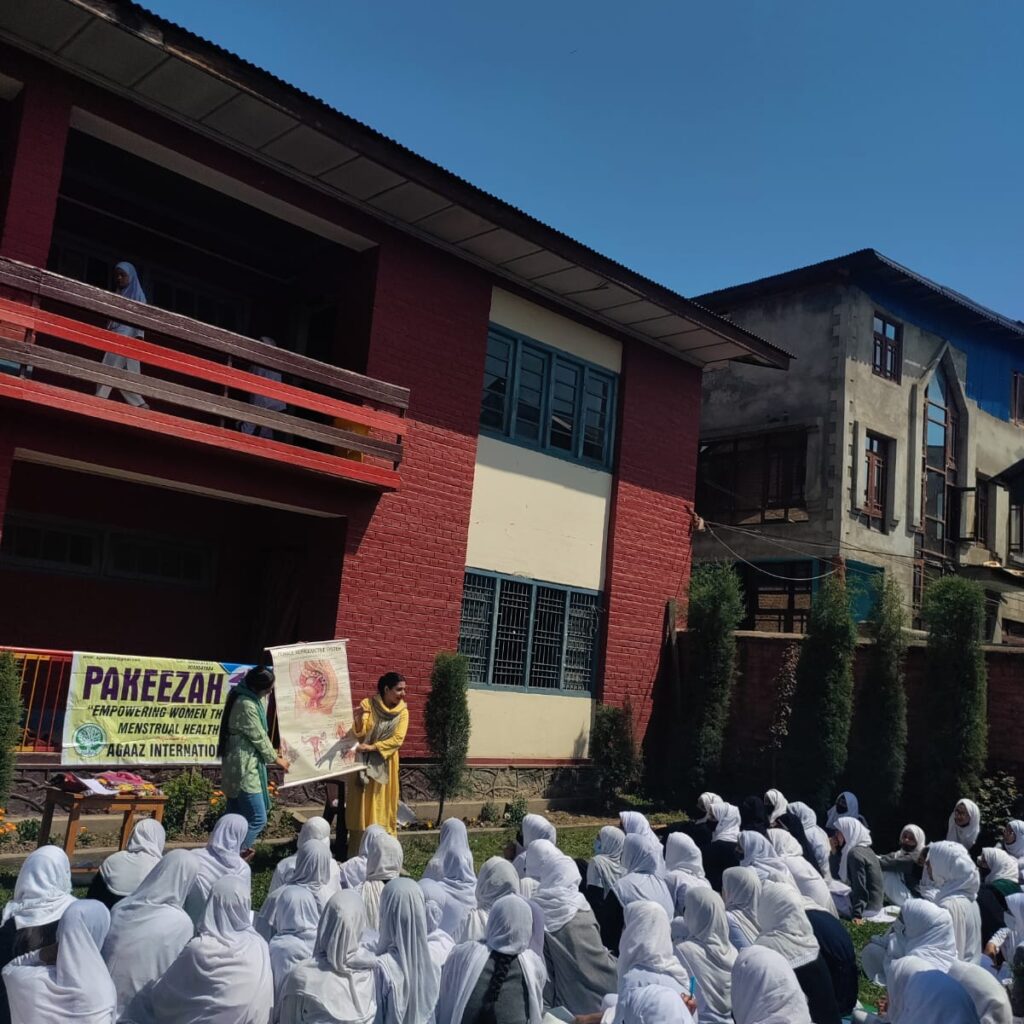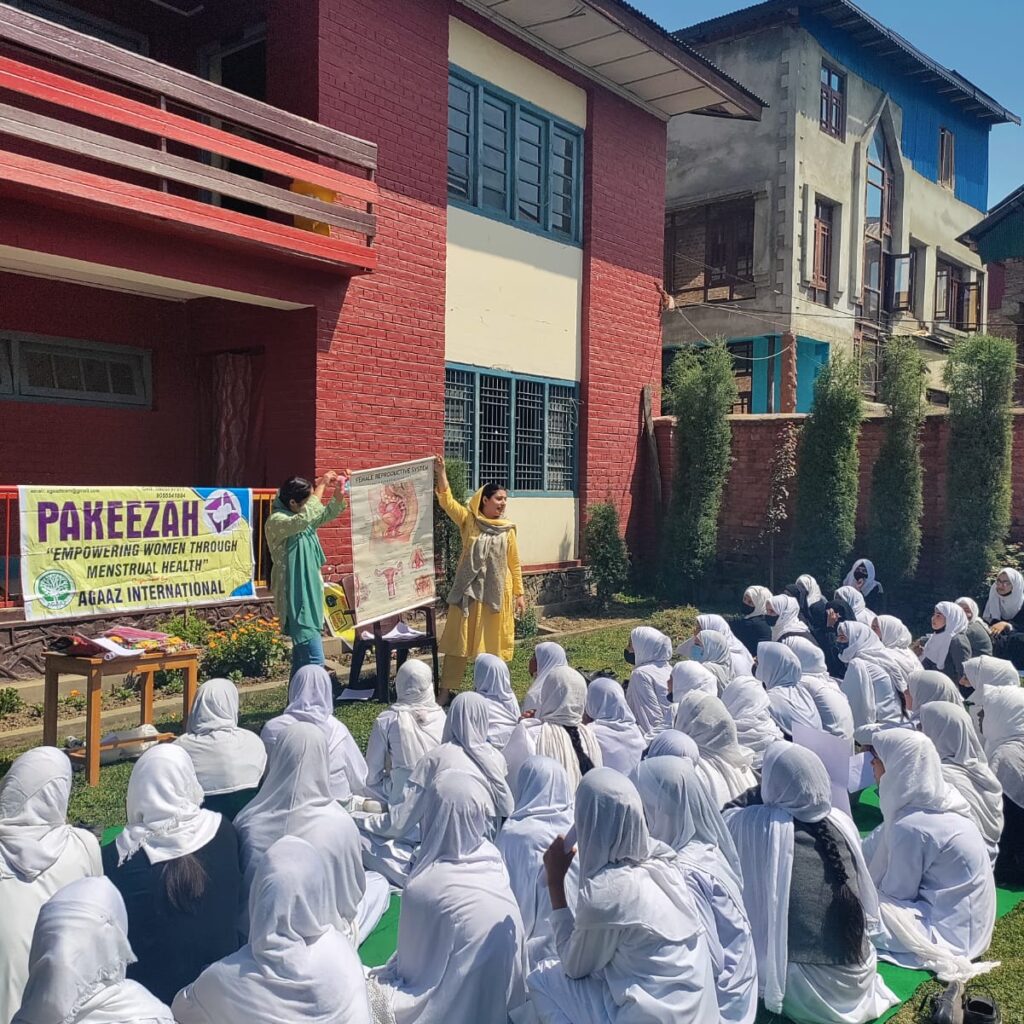Menstruation is a natural process and a basic right of every woman. Unfortunately, menstruation is still a taboo subject in many parts of the world, and this holds true for the rural areas of Kashmir too. The lack of access to menstrual hygiene products, coupled with inadequate knowledge, education, and sanitation facilities, puts women and girls at risk of infection and disease. Sheezan Rasool, Founder of Agaaz International, a social worker and the first menstrual health activist of Jammu and Kashmir, has taken upon herself the task of breaking this taboo and spreading awareness about menstrual health management in rural areas of Kashmir.
To mark the International Menstrual Hygiene Day on May 28, Agaaz International is partnering with Real Relief, Global Goals World Cup (GGWC), UNYA Denmark, and partners in 26 countries in kicking off a transnational dialogue on menstrual health throughout the month of May. Each day from the 1st to the 28th of May, the campaign focuses on the biggest challenges related to menstrual health and hygiene in each partnering country. As such, each country is dedicated one campaign day, and ours is on the 4th of May 2021.
Ms. Rasool’s journey began several years back with the aim of tackling the main problems about female menstrual hygiene and waste generation associated with it in rural areas of Kashmir. She designed a special project called PAKEEZA under which women and girls in rural areas are provided with a long-term solution to their menstrual needs while simultaneously educating them about periods, the reproductive system, and sustainable menstrual alternatives to disposable pads.
"Menstrual health is a basic human right and should not be a taboo topic." - Sheezan Rasool
In a conflict zone like Kashmir, where indefinite lockdowns are a regular thing, access to and safety of menstrual hygiene products is lost. Moreover, due to no access to doctors or the internet in some cases, the situation worsens. Therefore, Ms. Rasool is working on promoting the use of sustainable cloth pads and also teaching women how to make them. She has also trained hundreds of teachers on how to spark menstrual hygiene management in schools and reduce dropouts due to menstruation. Till now she has conducted sessions with thousands of females right from the last northern border district of India to the city of Jammu. She believes that it’s not just work for her, it’s a revolution of a healthy and productive lifestyle of females she dreams of.
The lack of access to information, education, and products to manage one’s period with dignity and pride are essential. More than 500 million girls and women worldwide are not able to manage their period hygienically and with dignity, putting them at risk of infection and disease, early pregnancy, and missing out on education. With this campaign, Sheezan Rasool shares a common goal of putting menstrual hygiene on the agenda. They aim to improve girls and women’s health, rights, and opportunities for quality education, gender equality, and safe sanitation and hygiene, referring to the Sustainable Development Goals of the United Nations (SDGs).
"Through the Pakeezah Initiative, we want to provide sustainable and eco-friendly menstrual products to women in need." - Sheezan Rasool
Real Relief manages the campaign and is a Danish company that produces and distributes innovative and sustainable items for the humanitarian sector. In doing so, they have put menstrual health on the top of their agenda, as they have invented the anti-microbial sanitary pad, Safepad. GGWC is a global football tournament for all-women amateur teams playing to break down barriers and promote local sustainable development. UNYA Denmark is a youth-led, non-profit organization that works to promote and raise awareness among youth about the United Nations, as well as UN-affiliated causes, values, and issues.
In conclusion, Sheezan Rasool’s Pakeezah Initiative aims to provide sustainable menstrual alternatives and raise awareness about menstrual health management in underprivileged communities in Pakistan. By doing so, the initiative hopes to break the stigma around menstruation and improve the quality of life for menstruating individuals in these communities. The efforts of Rasool and her team are commendable, and it is heartening to see individuals working towards such important causes.
